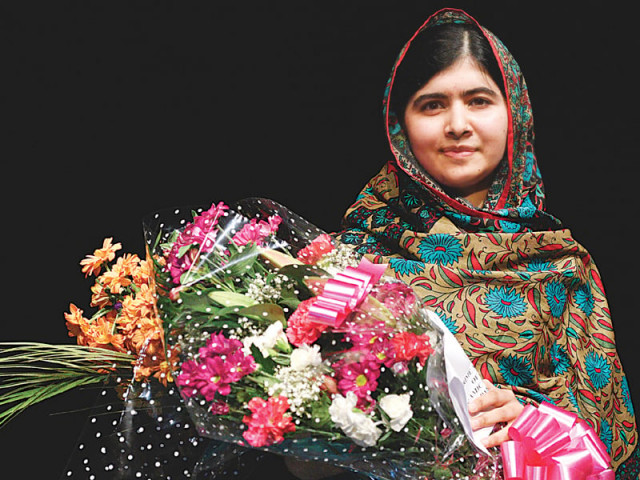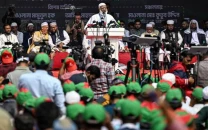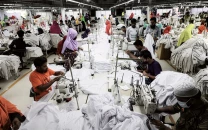The youngest laureate: A fitting Nobel for Malala
Teenage advocate of girls education shares the peace prize with India’s Kailash Satyarthi

Pakistani teenager Malala Yousafzai, who was shot in the head by the Taliban in 2012 for advocating girls’ right to education, and Indian campaigner against child trafficking and labour Kailash Satyarthi won the 2014 Nobel Peace Prize on Friday.
Malala, aged 17, becomes the youngest Nobel winner and 60-year-old Satyarthi the first Indian-born winner of the accolade. They were picked for their struggle against the oppression of children and young people, and for the right of all children to education, the Norwegian Nobel Committee said.
“The Nobel Committee regards it as an important point for a Hindu and a Muslim, an Indian and a Pakistani, to join in a common struggle for education and against extremism,” said Thorbjoern Jagland, the head of the Norwegian Nobel Committee.
Kristian Berg Harpviken, head of the Peace Research Institute in Oslo, described the joint award “an innovative prize that brings attention to the problems of the young”. Satyarthi said he hoped to work with Yousafzai for peace.
“I will invite her to join hands to establish peace for our subcontinent, which is a must for children, which is a must for every Indian, for every Pakistani, for every citizen of the world,” he said at the New Delhi office of his organisation, Bachpan Bachao Andolan.
Malala later told reporters in the English city of Birmingham where she now lives that she had spoken by telephone with Satyarthi on Friday and they had agreed to invite the prime ministers of India and Pakistan to the ceremony in December.
“The tension that is going on is really disappointing and I’m really sad because I want both countries to have dialogue to have talks about peace,” she said. Malala said she had found out about winning the Nobel Peace Prize on Friday from a teacher during a chemistry lesson, adding that the news had come as a big surprise.

“This is not the end of this campaign which I have started. I think this is really the beginning. I want to see every child going to school,” she said, adding she felt “really honoured”.
“I used to say that I think I do not deserve the Nobel peace prize. I still believe that,” Malala said. “But I believe it is not only an award for what I’ve done but an encouragement for giving me hope, for giving me the courage to go and continue this.”
The reaction in the streets of Birmingham, which has a large minority population of Pakistani origin, was also overwhelmingly positive. Imam Usman Mahmood of Birmingham central mosque, which with 6,000 followers is one of the biggest in the city and was visited by Malala and her family, also expressed his delight.
“It means that any person who puts their mind to something, they can achieve their goal,” he said. Malala was attacked in 2012 on a school bus in the Swat Valley by masked gunmen as a punishment for a blog that she wrote for the BBC’s Urdu service as an 11-year-old to campaign against the Taliban’s efforts to deny women an education.
Unable to return to Pakistan after her recovery, Malala moved to England, setting up the Malala Fund and supporting local education advocacy groups with a focus on Pakistan, Nigeria, Jordan, Syria and Kenya. Malala addressed the UN Youth Assembly last year at an event Secretary-General Ban Ki-moon called ‘Malala Day’. .
Satyarthi, who gave up a career as an electrical engineer in 1980 to campaign against child labour, has headed various forms of peaceful protests and demonstrations, focusing on the exploitation of children for financial gain. “It is a disgrace for every human being if any child is working as a child slave in any part of the world,” Satyarthi said. “I feel very proud to be an Indian that in India I was able to keep this fight on for the last 30 years or so. This is a great recognition and honour for all my fellow Indians.”
Last month, based on a complaint filed by Satyarthi’s organisation in a Delhi court, the Indian government was forced to put in place regulations to protect domestic workers who are often physically and sexually abused and exploited.
Published in The Express Tribune, October 11th, 2014.



















COMMENTS
Comments are moderated and generally will be posted if they are on-topic and not abusive.
For more information, please see our Comments FAQ